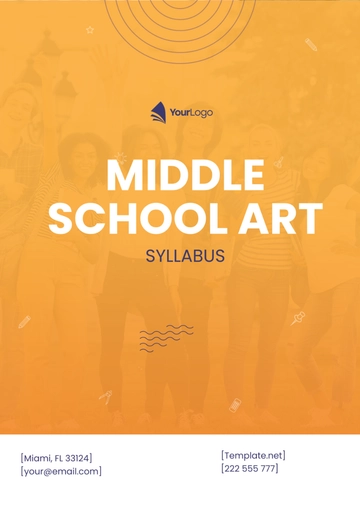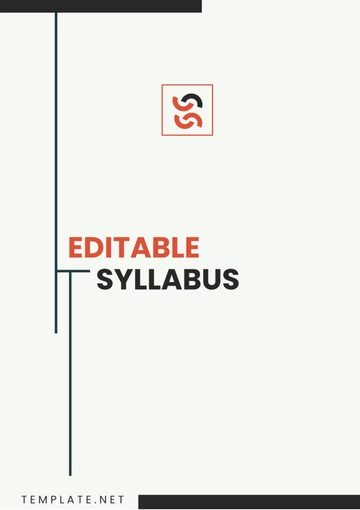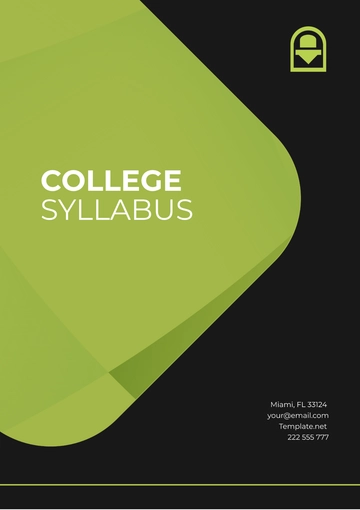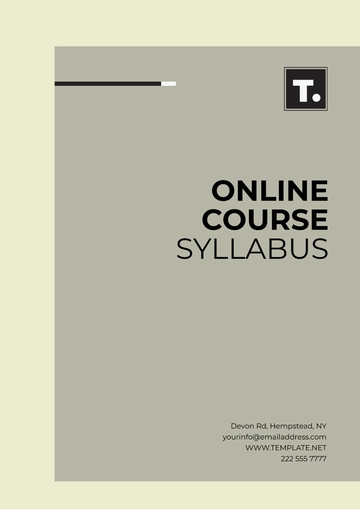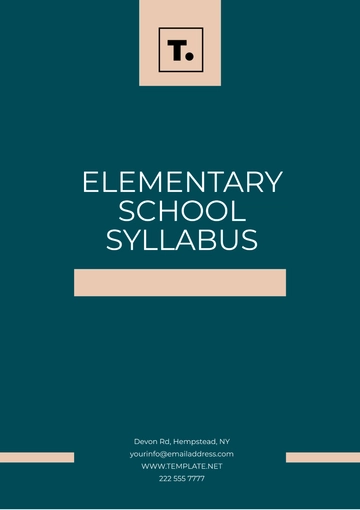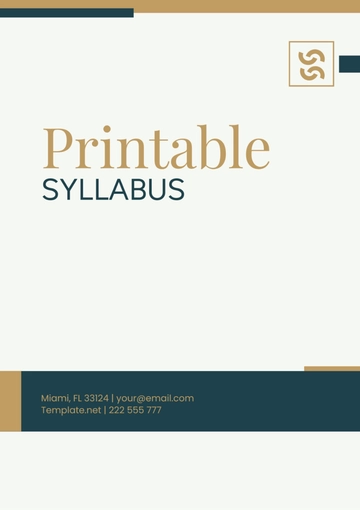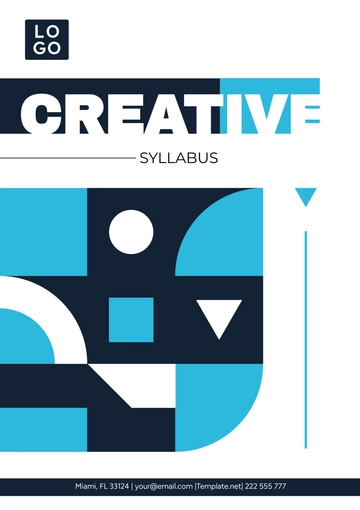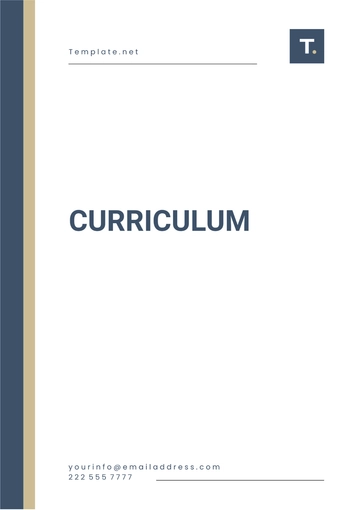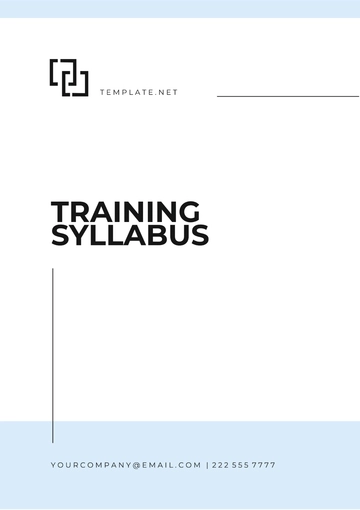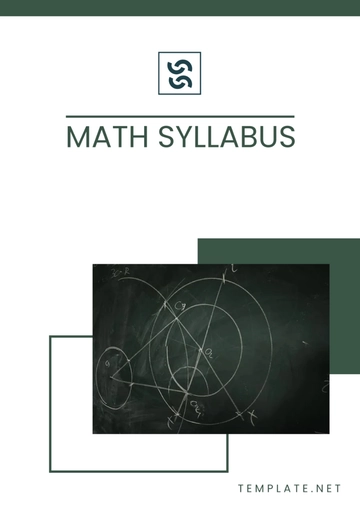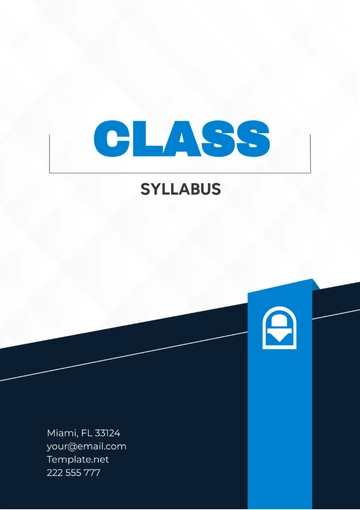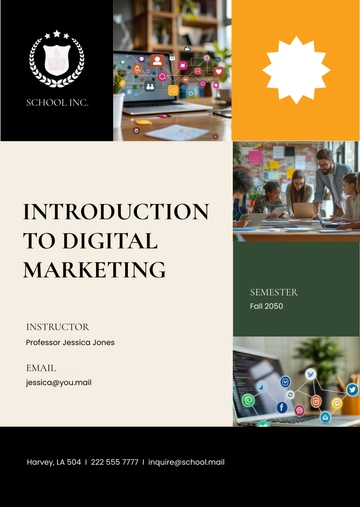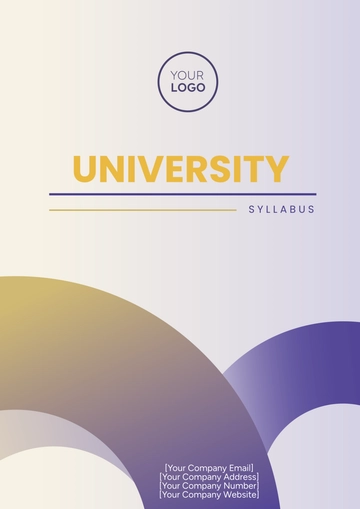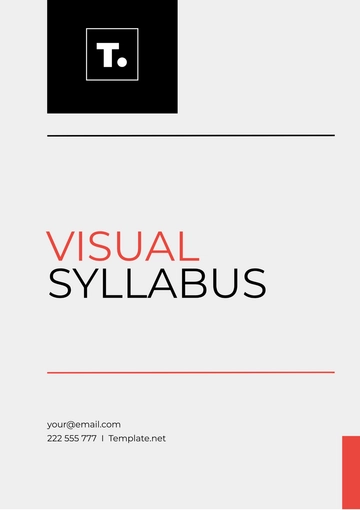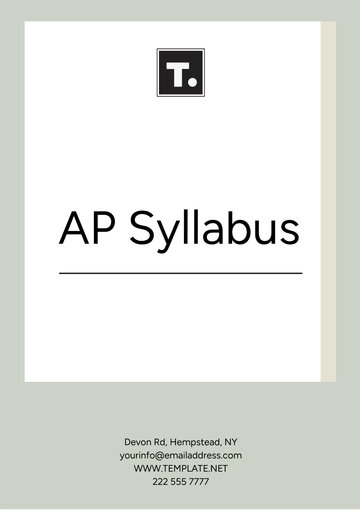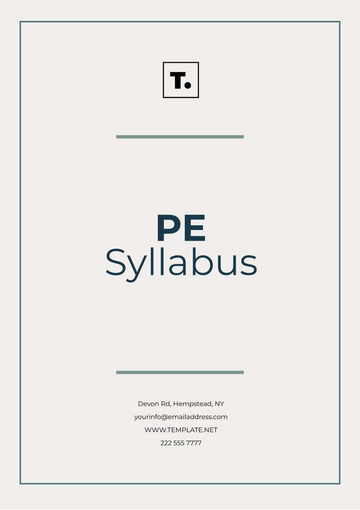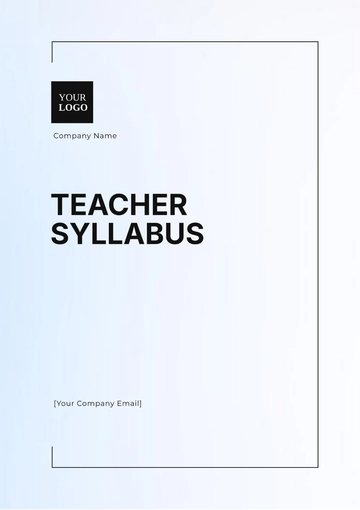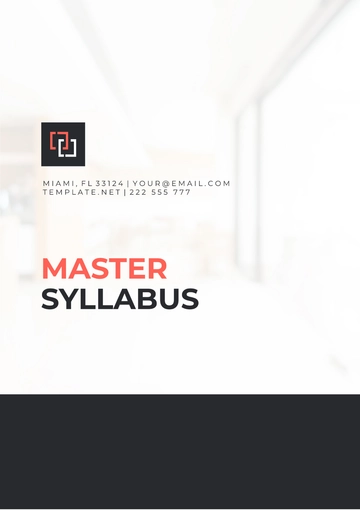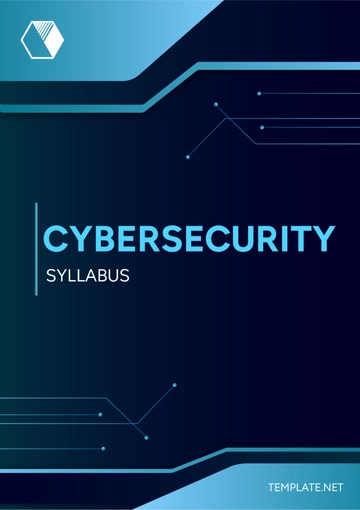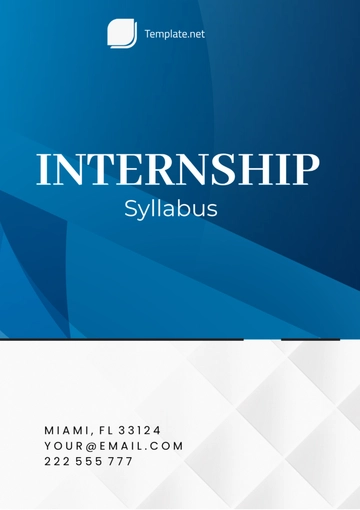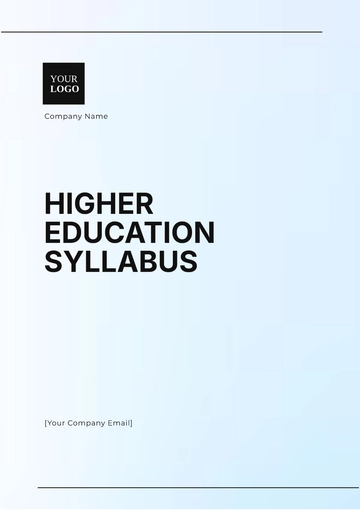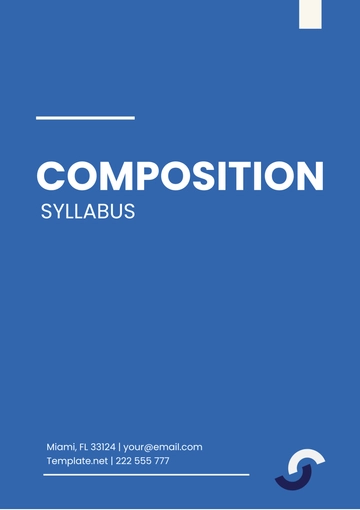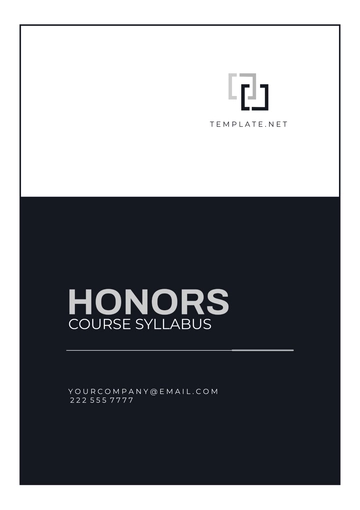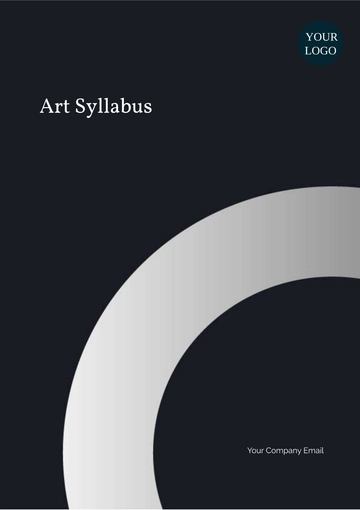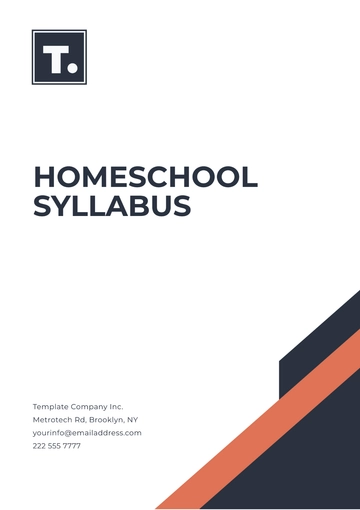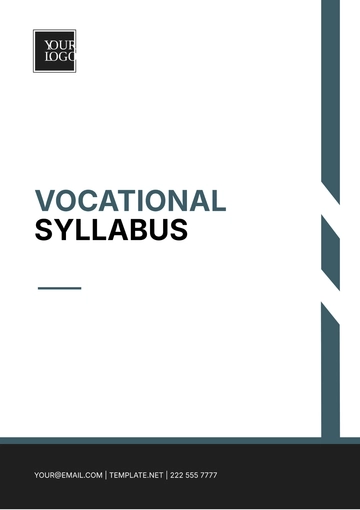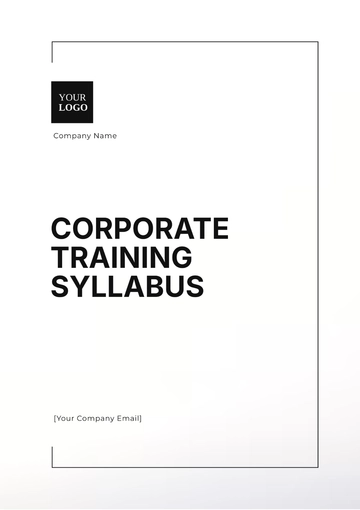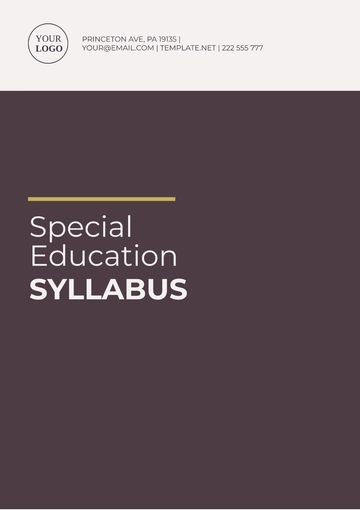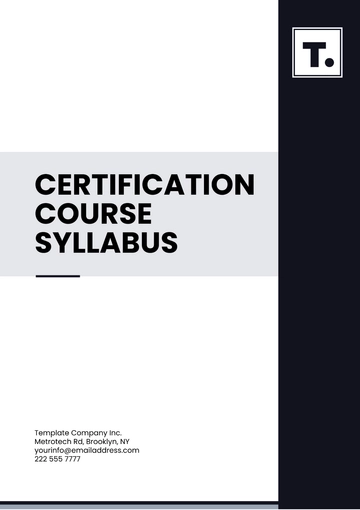Free Music Course Syllabus
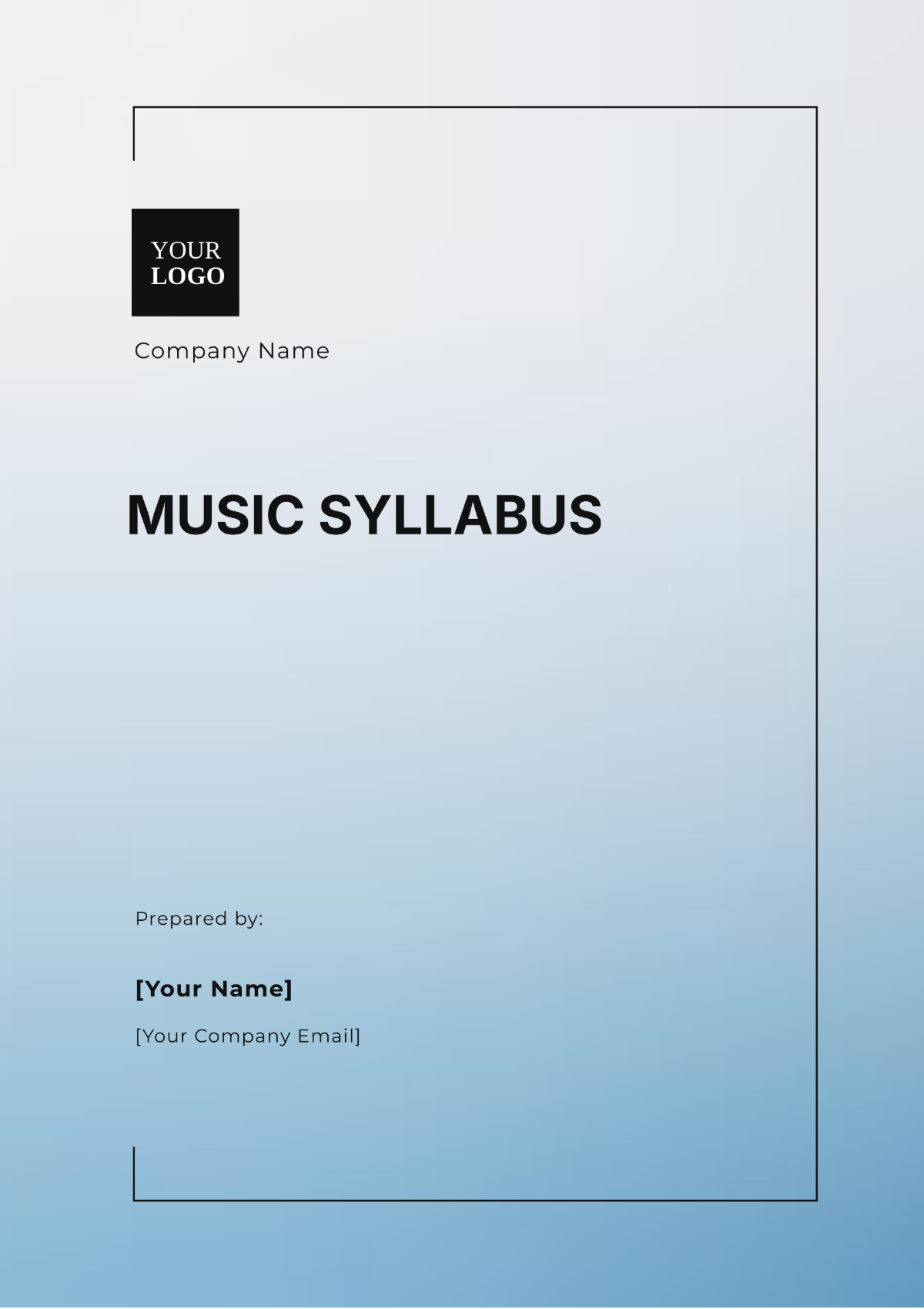
Music Theory Course
Course Title | [COURSE TITLE] |
Course Code | [COURSE CODE] |
Instructor Name | [YOUR NAME] |
[YOUR EMAIL] | |
Class Time | [CLASS TIME] |
Class Duration | [DATE] - [DATE] |
1. Course Description
This is an introductory course to music theory designed for students with limited or no background in music theory. We will cover the basics including reading sheet music, understanding keys and scales, rhythm, melody, harmony, and form.
2. Instructor Information
Name: [YOUR NAME]
Organization: [YOUR COMPANY NAME]
Contact: [YOUR EMAIL]
3. Learning Objectives
To understand and apply basic principles of music theory
To analyze and interpret sheet music
To distinguish and understand musical keys and scales
To develop aural skills through listening exercises
To cultivate musical creativity through composition exercises
4. Course Schedule
Week | Topic | Assessments |
|---|---|---|
1 | Introduction to Music Theory |
|
2 | Scales and Key Signatures |
|
3 | Chords and Harmony |
|
5. Required Reading and Materials
Tonal Harmony by Stefan Kostka and Dorothy Payne
A Manual of Music Theory by George J. Ferencz
Music Theory Workbook: A Self-Study Guide for All Musicians by Marc Schonbrun
Piano (or any musical instrument for practical application)
Music notation software (preferably MuseScore- free version available)
6. Assignments and Assessments
Students will be assigned worksheets and composition tasks weekly. Audio assignments help to foster aural skills. Periodic quizzes are given to monitor students' progress. At the end of the course, a cumulative exam will be given. Class participation counts towards the final grade.
7. Course Policy
Attendance: Regular attendance is required as it’s crucial in mastering the course materials.
Participation: Active participation is encouraged and will be part of the grading.
Late Assignments: Assignments must be turned in by the given deadline. Late assignments will be penalized.
Academic Honesty: Plagiarism and other forms of academic dishonesty will not be tolerated.
Special Accommodations: Students with special needs must provide relevant documentation.
8. Grading Policy
Criteria | Percentage |
|---|---|
Assignments | 30% |
Quizzes | 20% |
Final Exam | 40% |
Participation | 10% |
Total | 100% |
9. Supplementary Resources
Online tutorials and exercises
Recommended listening assignments
Additional reading materials on music theory
10. Course Evaluation
Student Feedback: Anonymous surveys will be conducted at the midpoint and end of the semester to gather feedback on the course content, teaching methods, and overall experience.
Instructor Evaluation: The instructor will reflect on the effectiveness of course materials and adjust future offerings accordingly to improve student learning outcomes.
Disclaimer
The course syllabus that has been provided should be considered as a general plan or framework for the entirety of the course’s duration. However, it is essential to note that there may be circumstances that necessitate deviations from this initial plan. In such situations where alterations to the original syllabus become unavoidable, students will not be left in the dark. They will be given ample notice of any such changes well ahead of time, to enable them to prepare and adjust accordingly.
- 100% Customizable, free editor
- Access 1 Million+ Templates, photo’s & graphics
- Download or share as a template
- Click and replace photos, graphics, text, backgrounds
- Resize, crop, AI write & more
- Access advanced editor
Discover the ultimate Music Syllabus Template at Template.net! Crafted for educators and musicians, this editable and customizable resource streamlines curriculum design. Seamlessly tailor lesson plans with ease using our Ai Editor Tool. Elevate your teaching experience and unlock creativity with our user-friendly platform. Get started today and unleash your musical potential!
